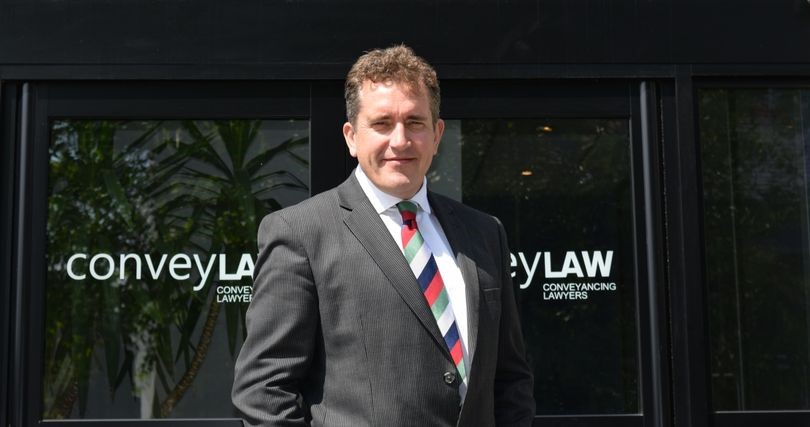Why Checking Photo ID is Crucial

It is not the first time that someone’s house has been sold from underneath them by property fraudsters but nevertheless the tale of Reverend Mike Hall’s house being sold while he was working away is shocking.
Reverend Hall was astonished to find the locks changed and a stranger happily carrying out renovation work when he came home from working away, his neighbours having tipped him off that work was going on.
His identity had apparently been stolen and the ‘sale’, which the buyer believed to be legitimate, had taken place behind his back with the new buyer then registered as the legal owner. To add insult to injury, the police told him it was a ‘civil’ matter, although they are now reviewing this.
Property owners and those who are looking to buy or sell a property will be terrified by this story. There is no doubt that traditional photo ID is not that difficult to bypass, especially with the increase in working online, which we have seen particularly rise in the legal conveyancing industry since the start of the pandemic.
It is of course vital and a legal requirement for all Conveyancers to verify a client’s identity at the start of a property transaction. How that identity is verified without seeing the client in person is and always has been key to protecting all parties to a transaction.
Most online Conveyancers have been in the business of checking client ID remotely for a very long time and the importance of rigorous ID checks is completely ingrained in our culture. Checking the photo ID documentation against a photo or video of the client with the use of biometric technology is absolutely vital.
HMRC are proposing that cryptographic data contained within the identity chip of a passport is also used to provide additional “Safe Harbour” assurance for Conveyancers. This involves the client using an app to access the chip in their passport and passing that through to the Conveyancer through a safe ID channel. This process is ideal – photo ID – video likeness & cryptographic verification – is the same as used during passport control when entering the UK from abroad!
A very welcome next step would be for HM Land Registry to keep an encrypted copy of the ID so that Conveyancers can re-verify that the seller is their client in accordance with the ID provided. The Penny Hastings case taught us how clever these fraudsters can be with the property owner’s identity recreated by an individual in prison by changing her name by deed poll. Encrypted ID held by the Land Registry would have prevented this type of fraud.
The work that the Government Department of Digital, Culture, Media and Sport are undertaking to create trust frameworks in the UK is vital. Standards need to be better defined so that Conveyancers and others in the transaction process can rely on the information provided. Conveyancers will still need to make their own physical ID checks on their clients – but again this has become easier with the use of video conferencing, which many Conveyancers are now using with their clients. Good customer face to face time – as well as ID due diligence perhaps!
Earlier this year Convey Law became the first legal practice in the UK to take part in the Passport Office Document Checking Service pilot, opening up Government Passport ID checks to private organisations for the first time.
At Convey Law, the first steps to verifying identity are undertaken in the first 48 hours after we are instructed when we send out a welcome pack and a log-in to our client portal.
When the information is returned to us, we are now able to use HM Passport Office to verify the identification information we have been given. If this checks out against officially held Government data, we are one step closer to being satisfied that the buyer or seller is who they say they are. We also run separate ID, electronic data and credit checks as well as verifying client ID with biometric testing.
Having the ability to check information contained in a UK passport against Government records has been a huge step forward. I believe this service perhaps alongside other government services, such as DVLA verification, will have a massive impact on reducing property fraud.
So what can Conveyancers and clients do now to protect themselves?
Conveyancers all need robust systems in place as described above.
The Bold Group has issued Red Flag Guidance to its members here to help Conveyancers look out for suspicious transactions.
I would also advise all clients, particularly those who own an empty or tenanted property to register their properties with the Land Registry Alert Service here to notify them of any dealings or searches against their properties as an early warning system.
Purchase clients are also advised to register a restriction against the title of the property requiring their Conveyancer to certify their identity before the property is sold, which acts as a further deterrent to fraudsters whilst the above proposals are considered by the Land Registry.
As members of the Society of Licensed Conveyancers, their valuable advice on avoiding property cybercrime is provided to our clients and is available on our website here.
The Conveyancing Association have some excellent cybercrime tips and protocols for all Conveyancer to follow and which can be accessed via their website here.
There is of course no substitute for training and reminding Conveyancing staff of the dangers of cybercrime, which I hope this article will assist with.
At the end of the day, it all comes down to due diligence on the part of everyone involved in the buying and selling processes. Taking the time to check and double check and putting systems in place, like the Passport Office Document Checking Service, to prevent more unsuspecting victims of property crime like Reverend Hall.
November 25, 2021